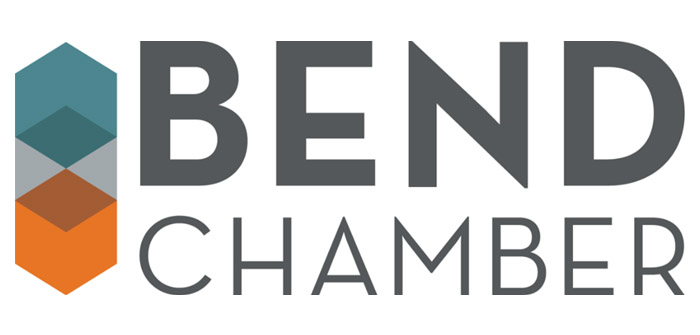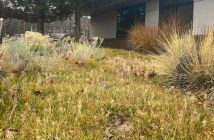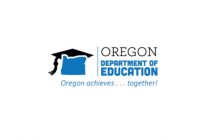On September 21 at Tetherow, the Bend Chamber held What’s Brewing, an event that brings together business owners and community members to talk about their industries and various other and business related topics. This iteration was titled, “Responding to Economic Fluctuations & Supply Chain Disruption,” and was presented by a variety of members of the Bend Chamber, including Board Chair Jay Lyons, Membership Leader Shelley Junker, and President and CEO Katy Brooks.
Before the presentation began, the audience was presented with a QR code to scan and answer a couple of questions regarding how they think their businesses will grow in the near future. The audience’s answers reflect well for the business community; the majority of the people polled said that they anticipate their business to grow.
A large portion of the talk was given by Damon Runberg, state economist at Business Oregon. Runberg’s talk was all about how Bend’s economy can become more resilient.
An early slide showed a graph of economic growth over the past two decades for the US, Oregon and just the Bend-Redmond MSA (Metropolitan Statistical Area). Runberg pointed out that while the US had seen an overall 18 percent increase and Oregon had seen an overall 22 percent increase, the Bend-Redmond MSA saw a staggering 71 percent.
However, while the overall growth was substantial, Runberg added that just looking at the figure hides the bigger picture. While Bend still follows national economic trends, the highs and lows are much more significant.
For example, in the 2000s economic expansion, the US saw 4.2 percent economic growth, while the Bend-Redmond MSA saw 14.8 percent. Likewise, when the Great Recession saw the U.S. with a 6.3 percent decrease, the Bend-Redmond MSA saw 15.9 percent decrease.
Runberg provided some possible reasons for why our local economy trends in this way, including how tourism is always hit hard during recession (and people splurge on tourism when the economy is booming), and the possibility that remote work had some contribution.
The usual talking point on how Bend doesn’t have a diverse economy was squashed when Runberg explained how Deschutes County is the fourth most diverse economy in the state, and the breakdown of Bend’s industries is actually much more diverse than many people think.
An interesting point was that while Bend has a diverse modern economy, we have also transitioned from being mainly goods producing to service producing. A big change has been a shift from manufacturing to business, tech and health/educational services; since 1990, the manufacturing industry’s share of jobs in Bend has decreased from 16 percent to 7 percent, while professional/business services increased from 6 percent to 12 percent and health services/private ed. increased from 8 percent to 17 percent.
As to why our economy can recover as quickly as it can, Runberg included our natural amenities, strong tourism, high quality of life, overall population growth and our entrepreneurial community on a list of reasons.
Runberg said that our resistance to future economic downturn will likely be better due to broader industry expansions and a diversified economy. However, he said we might face issues while recovering from economic downturn due to a lack of housing supply and affordable homes for individuals across the entire income spectrum.
Overall, Runberg was optimistic about Bend’s economic future, and confident that our business community will continue to innovate and grow.
Before the night ended, two more speakers were brought on to answer questions about their respective businesses; Senior Director of Performance Optimization at St. Charles Health Systems Theresa Drulard, and President and Chief Geologist of the Wallace Group. The two answered questions related to resiliency, explaining how their businesses have adapted to staffing issues, changes in the workplace and new advances in technology.





